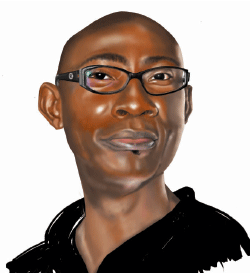What is happening at the Federal Capital Territory (FCT), Abuja with regard to the menace of cattle rustlers was succinctly captured by TheNews on Thursday, July 14, in a manner that should ring bell in the head of the FCT government.
The News reported: “Tragedy was barely averted on the ever busy Nnamdi Azikwe International Airport Road, Abuja on Thursday as three young herders lose control of one of the cows they were herding.
“One of the cows suddenly seemed no longer contented walking by the sidewalk and decided to jump right into the middle of the highway, leaving stunned motorists scrambling for brakes.
“The incident, which occurred opposite the National Military Cemetery, just few kilometres away from the Federal capital city gate around mid-day resulted into commotion on the highway as the herders struggle to arrest and put the obviously ‘mad’ cattle under control.
“The ‘mad’ cow however will not allow itself to be easily ‘cowed’ even by its herders. It continues to run around the major road, an action that nearly resulted in multiple road accident in what is definitely a bad morning day for most drivers.
“Eventually, it was the cow that decided to end the commotion on its own as it ran back into the bush after about ten minutes futile chase by the young herders.
“The incident amplifies why the FCT Minister should heed calls by residents of Abuja to stop grazing of cattle along the major roads and residential areas of Nigeria’s capital.”
According to Wikipedia, Abuja is the capital city of Nigeria, located in the country’s centre, within the FCT. It is a planned city, built mainly in the ‘80s, and officially became Nigeria’s capital on December 12, 1991, replacing Lagos.
The geography is defined by Aso Rock, a 400-metre monolith left by water erosion. The Presidential Complex, National Assembly, Supreme Court and much of the city extend to the south of the rock. Zuma Rock, a 792-metre monolith, as it is called, lies just north of the city on the road to Kaduna State.
The city of Abuja had a population of 776,298, at the 2006 census, making it one of the 10 most populous cities in Nigeria.
According to the United Nations, Abuja grew at the rate of 139.7 per cent between 2000 and 2010, making it the fastest growing city in the world. As of 2015, the city is still experiencing an annual growth of at least 35 per cent, still retaining its position as the fastest growing city on the African continent and one of the fastest in the world.
Abuja has witnessed a huge influx of people into the city; the growth leading to the emergence of satellite towns such as Karu Urban Area, Suleja, Gwagwalada, Lugbe, Kuje and smaller settlements to which the planned city is sprawling.
The unofficial metropolitan area of Abuja has a population of well over three million and comprises the fourth largest metropolitan area in Nigeria, surpassed only by Lagos, Kano and Ibadan.
Significant sights include the Nigerian National Mosque and the Nigerian National Christian Centre. The city is served by the Nnamdi Azikiwe International Airport.
Abuja is known for being one of the few purpose-built capital cities in Africa as well as being one of the wealthiest.
We all know the seat of Nigeria’s government as the FCT. It is like the window or door that opens the heart of the country to the outside world, both those who want to have their first or subsequent contacts with Nigeria.
Conscious of the fact that the FCT ought to be given a status that befits its political and administrative setting and in line with what is globally competitive and acceptable, successive governments before the current one did so much to preserve its poise, beauty and sanctity. That is why Abuja is believed to have great potentials as an emerging world city.
It is also the reason why the Abuja Master Plan has occupied and will continue to occupy a critical position in the policy formulation of the FCT administration, past and present.
Every minister of the FCT is believed to be the conscience of the government in terms of implementation of the master plan and gets disturbed if anything stands on the way of its realisation.
But recent events by the rampaging herdsmen with their ubiquitous and marauding mad cattle should inform that the name of the Federal Capital Territory is fast changing to the Federal Cattle Territory, no thanks to the man who seats comfortably as the minister watching all the madness going on.
For emphasis sake, the Abuja master plan makes provision for five Districts in Phases 1,2 and 3 to include: the Central, the Garki, Wuse, Maitama, and Asokoro, Kado, Durumi, Gudu, Utako and Jabi, Mabuchi, Katampe, Wuye and Gwarimpa.
Five suburban districts: Nyanya, Karu, Gwagwalada, Kubwa, and Jukwoyi are also available.
Clusters of satellite settlements such as Lugbe, Chika, Kuchigworo, Pyakassa , Idu, Mpape, Karimu, Gwagwa, Dei-Dei also exist.
In the master plan are many landmarks like Millennium Tower U/C, Central Bank of Nigeria headquarters, Nigerian Presidential Complex, Aso Rock, Official Residence of the President of Nigeria, Zuma Rock, NNPC Towers, Abuja International Conference Centre, African Hall, and Nigerian Communications Commission Building in the central district.
Others are Millennium Park, National Library, Castle of Law, National Mosque, National Ecumenical Centre (National Church), Abuja Stadium, The Velodrome, ECOWAS Secretariat, Ladi Kwali Pottery Centre among others.
Like said earlier, past FCT ministers worked towards ensuring that sanity reigns in the area, and the name of Nigeria not brought to opprobrium before the international community, what more, for our failure to do the right thing.
From Mobolaji Ajose-Adeogun (1976–1979), Dyesha Nabeela (1994-2016), John Kadiya (1979–1982), Iro Dan Musa (1982–1983), Haliru Dantoro (1983–1984), Mamman Vatsa (1984 – December 1985), Hamza Abdullahi (1986–1989), Gado Nasko (1989–1993), Jeremiah Useni (1993–1998), Mamman Kontagora (1998–1999), Ibrahim Bunu (1999–2001), Mohammed Abba Gana (2001–2003), Nasir el-Rufai (2003 – May 2007), Aliyu Modibo (2007–2008), Adamu Aliero (2008–2010), to Bala Mohammed (2010–2015), none was as not bothered as the current minister, Mohammed Bello (2015- ) over the challenge the cattle rustlers and their business is causing the country.
This writer does not need to recall the havoc the herdsmen had caused in different parts of Nigeria with their trade, leaving many citizens dead and others with permanent injuries.
The impunity with which the herdsmen go about their grazing business of late, which of course they do in proxy for their big shots, has been condemned by all well-meaning Nigerians, but it seems those who should shout loudest for the sake of sanity like Bello are unnecessarily lukewarm because he wants to keep his job.
But he cannot keep his job at the detriment of the lives of Nigerians who reside in Abuja and their visitors from outside our shores who throng into the country daily through Abuja for trade and commerce with the notion that the FCT is an emerging global city.
The environmental hazard which the sight of cattle and their tenders pose on the streets of the FCT is anti-thethical to international standard on environmental harmony and hazards.
In the United States of America where there are big time cattle owners like we have here in Nigeria in the likes of retired Generals Muhammadu Buhari, Olusegun Obasanjo, Muritala Nyako, Abdulsalami Abubakar, Ibrahim Babangida among others, the last thing the Mayors of the cities of California or New York would allow is the straying of cattle that will pose grave danger to the lives of law abiding citizens.
If there is any minister who should be so concerned about restoring sanity in the way cattle are reared in the country with regard to ranching that minister ought to be the FCT minister, Bello.
But the vibe one gets suggests exhibition of some ramish tendencies which rather than help check the menace, fans its looming danger.
My fear is that since last year Buhari came on board and his kit and kin started deluding themselves that power exchanging hands means perpetrating impunity no matter how lowly, it would be difficult to rein in the minders of the mad cow in the FCT going forward.

- Advertisement -
- Advertisement -
Must Read
Tunde Onakoya breaks Guinness World Record for chess marathon
Onakoya with the feat, surpassed the previous record set by Norwegian players, Hallvard Haug Flatebø and Sjur Ferkingstad in 2018











